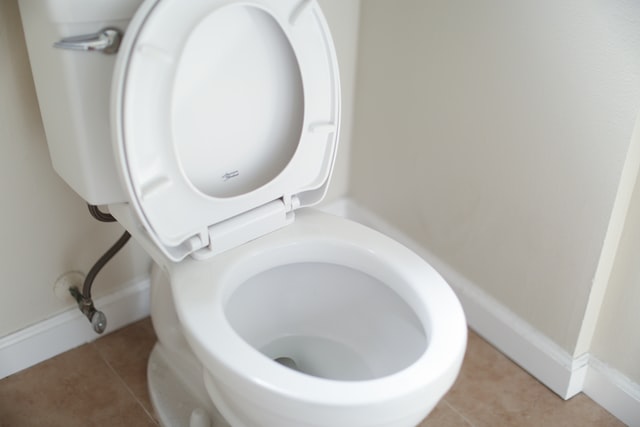Constipation occurs when the intestinal contents remain within the gastrointestinal tract for a long time. It is considered normal to donate one stool once a day (daily), but in practice people with proper bowel movements can still include those with bowel movements at least 3 times a week, provided that the stool has the correct consistency, color and volume, and therefore weight. How to get rid of constipation?
What is constipation?
Constipation is a prolonged retention of intestinal contents in the gastrointestinal tract (usually in the large intestine) or problems with the excretion of stool from the end of the digestive tract, i.e. from the rectum. As a result of prolonged retention in the large intestine, the intestinal content is over-thickened (by absorbing water), and the stool thus significantly reduces its volume, becomes harder and more compact. Man gives hard stool usually once every few days (often so-called bean-shaped), usually after a pharmacological provocation or after cleaning products.
Constipation – Causes
Among the possible causes of constipation should be mentioned neurological diseases (multiple sclerosis, Parkinson’s disease, spinal cord tumor or cerebrovascular diseases and diabetic neuropathy).
- lengthening of the large intestine with disorders in the vein,
- large bowel enlargement due to lack of ganglion
- situational reasons (e.g. long journeys, lack of bowel movements, prolonged bedtime),
- narrowing of the intestinal lumen by a tumor growing inside the intestine or compressing the intestine from the outside,
- functional disorders (e.g. habitual constipation or sphincter spasm),
- diabetes,
- Hypothyroidism,
- endometriosis,
- ovarian / uterine cancer
- hernia,
- hemorrhoids.

Symptoms of constipation
Among the symptoms that accompany constipation we most often distinguish:
- excretion of hard feces accompanied by pain,
- nausea,
- bloating,
- lack of appetite
- dizziness,
- belching,
- feeling of fullness (caused by gases accumulated in the intestine, which cannot escape because the stool is in the intestine),
- stool with small mucus (due to irritation of the intestinal mucosa),
- sensation of expansion in the epigastrium and abdomen,
- fever as an accompanying symptom,
- weight loss
- blood in feces
- anemia,
- nighttime abdominal pain.
Constipation – treatment and home remedies
To avoid constipation you should strive for:
- regulate the lifestyle, if you can see in it the causal conditioning of constipation,
- changes in diet if it causes errors conducive to the emergence and persistence of constipation, e.g. on a coarse-grained diet and containing a lot of fiber (wholemeal bread, buckwheat, not too crumbled salads), etc.,
- consumed, immediately after waking up, a glass of lukewarm water, kefir, sour milk, dried plum compote, 1/2 cup of sauerkraut juice, or 2 tablespoons of honey previously poured (in the evening) with a glass of cool, boiled water and a full-fledged breakfast,
- restoring the reflex of regular bowel movement by attempting to defecate at the same time of day,
- take 3 teaspoons of natural (i.e. not steamed) linseed 3 times a day,
- avoidance, until gradual exclusion, the use of laxatives, etc.
During constipation, it is worth taking osmotic drugs, e.g. glycerol or lactulose, which reduce stool thickening. Lactulose is a very often recommended preparation, but people who have galactose intolerance should not take it.










